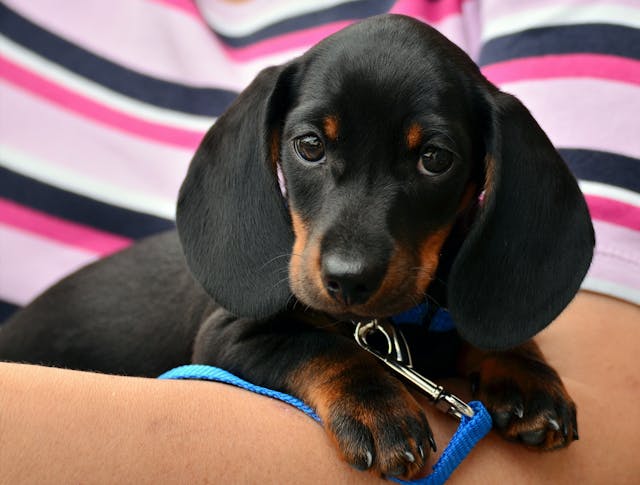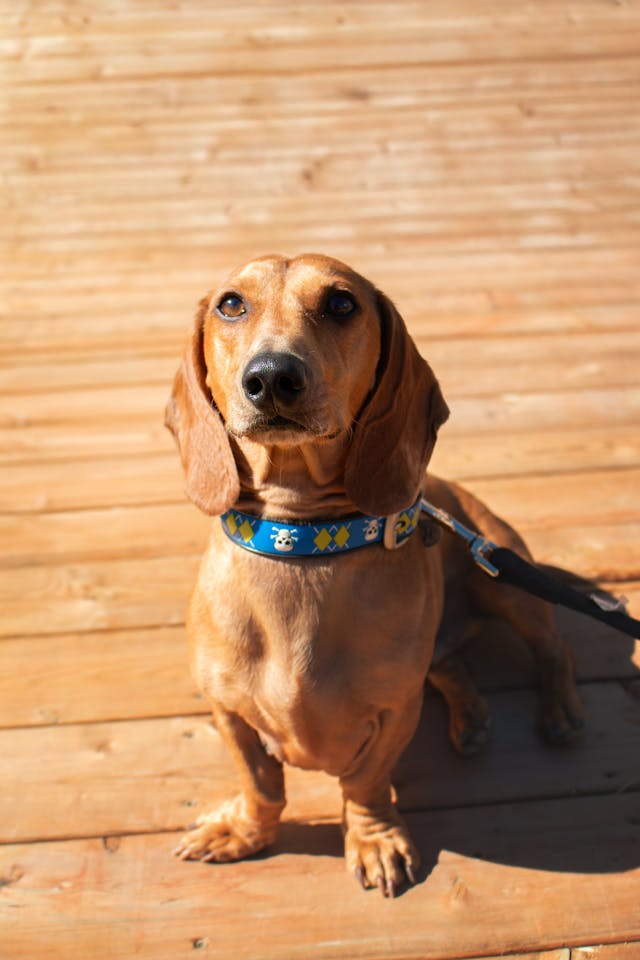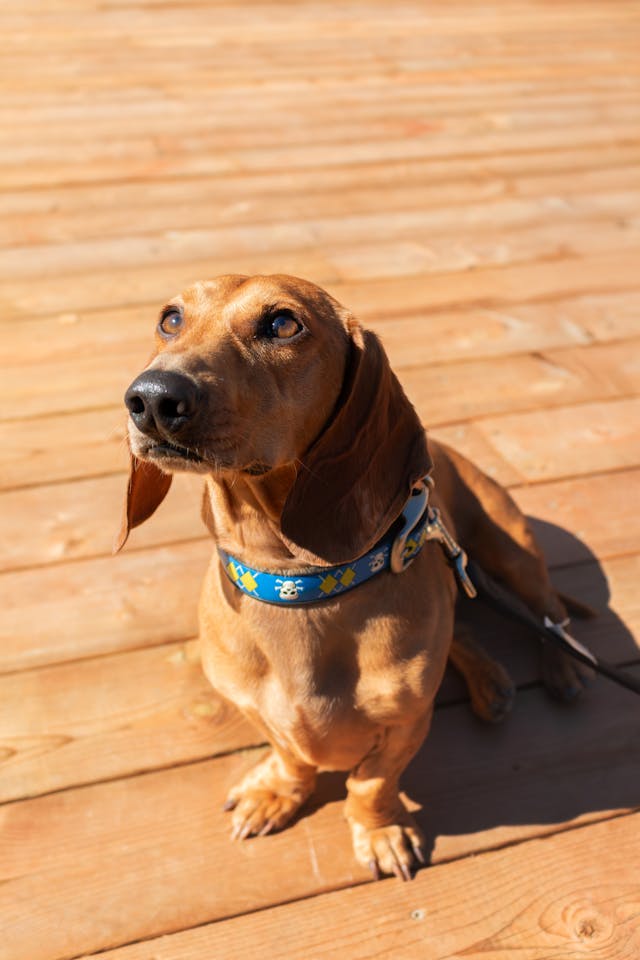When it comes to the Miniature Dachshund, one of the most common questions prospective pet owners ask is, “How long do they live?” It’s no surprise, considering how deeply we become attached to these charming little dogs. The Miniature Dachshund is not only adored for its playful personality and distinctive looks but also for its surprisingly long lifespan. While many small dog breeds typically live 10 to 12 years, Miniature Dachshunds tend to have a longer life expectancy, averaging between 12 and 16 years. In fact, some Miniature Dachshunds can live even longer if given the proper care, and some studies have even reported a few living into their late teens. Taco Terrier: The Ultimate Chihuahua & Fox Terrier Mix Guide
Table of Contents
As much as we adore them for their loyalty and spunky nature, the lifespan of a Miniature Dachshund isn’t set in stone. Like all dogs, their longevity depends on several factors, including their breeding history, nutrition, exercise, and healthcare. If you’re considering adopting a Miniature Dachshund or already have one, understanding how to maximize their health and wellbeing can ensure they live a long and happy life. From health checks to providing the best environment and diet, there are many aspects that influence how long your dog will stay by your side. Let’s dive deeper into the details.
Average Lifespan
The Miniature Dachshund is a small breed, but they have a long lifespan compared to many other small dogs. Typically, their lifespan ranges between 12 and 16 years, making them one of the longer-living breeds among small dogs. In fact, some lucky Miniature Dachshunds may live even longer with the right care. This breed’s life expectancy is significantly influenced by factors such as healthcare, nutrition, and even the environment they live in. Their smaller size generally contributes to their longevity, as larger dogs tend to have shorter lifespans. But just because they live long doesn’t mean they’re immune to health problems, so it’s important to stay vigilant in providing proper care.

Factors Affecting Lifespan
The lifespan of a Miniature Dachshund is influenced by several crucial factors. First and foremost, breeding plays a significant role in how long they will live. Miniature Dachshunds from reputable breeders, who prioritize health and genetics, generally live longer and healthier lives. Responsible breeding practices help avoid genetic conditions that could shorten their lifespan, such as intervertebral disc disease (IVDD) and certain heart or kidney problems.
Additionally, nutrition is a major factor in extending your dog’s life. A balanced, high-quality diet ensures that your Miniature Dachshund receives the necessary nutrients to support its health throughout all stages of life. Be sure to avoid feeding them harmful foods such as chocolate, grapes, and onions, which can be toxic to dogs. Providing fresh water at all times and feeding them healthy treats that are not calorie-dense or harmful is key to maintaining their health.
Another important factor is the living environment. A Miniature Dachshund thrives in a safe, clean, and calm environment. Their small size means they are particularly sensitive to extreme weather, so it’s important to keep them indoors in a warm, dry, and mold-free space. A safe environment can prevent accidents, like falls that might cause injury due to their delicate frames. A crate can also provide them with a secure and calm space to relax, especially if they are crate-trained.
Lastly, healthcare is vital. Regular vet visits for vaccinations, parasite control, and health checks are important in catching any health issues early. Keeping up with these check-ups helps prevent serious illnesses and extends the Miniature Dachshund’s life. Additionally, ensuring that they receive regular vaccinations and are spayed or neutered if you don’t plan to breed them is essential for long-term health.
Life Stages
Puppy (0–6 to 9 months)
The puppy stage of a Miniature Dachshund’s life is when they are most playful and curious. During these early months, they require high-quality, nutrient-rich food for proper growth. They are also learning essential socialization skills and becoming accustomed to their environment. It’s crucial to keep them safe and ensure that they are not overexerted at this age. Proper training and a healthy routine help build a strong foundation for their later years. Wanna get dachshund petfinder or AKC

Young Adult (6 to 9 months to 3 years)
The young adult years are when your Miniature Dachshund will go through a period of physical growth and behavioral development. While they may have already matured physically, they still need your guidance to complete their social and behavioral training. At this age, they are still full of energy and curiosity, so providing adequate exercise is important for their physical and mental well-being. Keeping them active with daily playtime and engaging activities will ensure they remain healthy. Their immune system is more developed, and they are less prone to childhood illnesses.
Mature Adult (3 years to 9–12 years)
By the time your Miniature Dachshund reaches mature adulthood, they will have settled into their routines and developed a more stable temperament. While they may not be as energetic as in their younger years, they still need moderate exercise to maintain their health. This period is when they should begin regular health checks to ensure that age-related issues like arthritis or obesity don’t affect their quality of life. At this stage, it’s important to focus on their physical and emotional needs, keeping their environment calm and secure.
Senior (9 to 12 years and beyond)
As your Miniature Dachshund enters their senior years, their energy levels will likely decrease, and they may sleep more. This is normal, but it’s important to adjust their exercise routines to match their aging bodies. Regular healthcare becomes even more crucial at this stage, as Miniature Dachshunds are prone to age-related health issues. This is also when they may develop gray hair around their face, signaling their transition into the later years of life. By ensuring that their diet is suitable for senior dogs and providing appropriate medical care, you can help them maintain a high quality of life well into their later years.
How to Tell Miniature Dachshund’s Age
Estimating the age of your Miniature Dachshund can be tricky, especially if you’ve adopted them as an adult. Here are some clues:
- Activity Level: Senior dogs tend to be less active, sleep more, and show less interest in play. If your dog’s behavior has slowed down, they may be entering their senior years.
- Eyes: As Miniature Dachshunds age, their eyes may develop a cloudy appearance due to conditions like nuclear sclerosis or cataracts. This is a sign that they are getting older, although it’s not a foolproof indicator of their exact age.
- Teeth: Older dogs usually have worn-down teeth, often with more tartar buildup. Their teeth will appear less white, and they may have a stronger smell to their breath. Younger dogs, on the other hand, will typically have whiter teeth.
- Coat: Miniature Dachshunds often develop gray hair as they get older. If you notice a lot of gray around their face or muzzle, they are likely entering their senior years.

Why Do Some Miniature Dachshunds Live Longer Than Others?
While most Miniature Dachshunds live between 12 and 16 years, some are fortunate to exceed this average. Several factors contribute to their longevity:
- Genetics: Dogs from healthy genetic lines are more likely to live longer. If your Miniature Dachshund comes from a responsible breeder who focuses on genetic health, they are likely to have a longer life.
- Healthcare: Regular vet visits for vaccinations, health checks, and parasite control are key to a longer lifespan. Maintaining an ongoing relationship with a trusted vet ensures that potential issues are caught early.
- Living Environment: Providing a safe, clean, and stress-free environment is essential. Miniature Dachshunds are particularly sensitive to temperature fluctuations, so keeping them indoors and comfortable is vital for their wellbeing.
- Exercise: Providing the right amount of exercise without overdoing it is essential for their long-term health. Excessive physical strain can lead to injuries like IVDD, but daily moderate exercise ensures they stay in shape and maintain a healthy weight.
Schipper-chi {Schipperke Chihuahua Mix}Info, Pics, care and more
Chihuahua & Pekingese Mix: Photos, Info, and Care Tips!
Chi-Spaniel(Chihuahua & Cocker Spaniel Mix) Info, Pics and more

